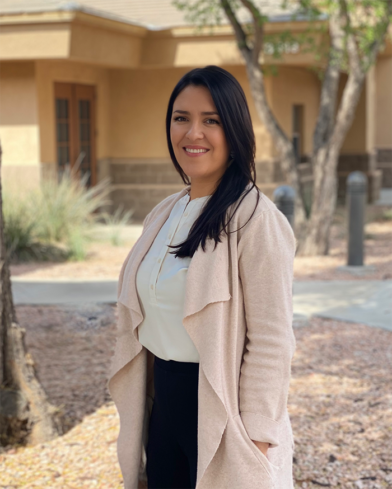
Adult Trauma Counseling
Understanding Trauma: How It Impacts Your Nervous System and Healing
Explore how trauma affects the nervous system and discover effective therapies for healing at Pathways Counseling Services.
What Is Trauma?
Trauma is not simply defined by the events that occur; rather, it encompasses the profound emotional and physical responses that arise as a result.
Moreover, it can stem from various distressing experiences, including accidents, medical interventions, or acts of violence.
Consequently, these experiences can leave lasting imprints on both your mind and body.
For example, many individuals may find themselves grappling with anxiety or emotional numbness long after the initial event has passed.
Additionally, trauma can manifest in unexpected ways, such as through hypervigilance or chronic fatigue.
Therefore, understanding what trauma truly is requires looking beyond the event itself to recognize its deeper impact on your nervous system.
This understanding is crucial for those seeking to heal from their experiences.
Furthermore, recognizing that your reactions are not personal failures can be liberating; they are adaptive responses designed to protect you.

How Trauma Affects the Brain and Body
The effects of trauma on your brain and body are profound and often complex. When faced with traumatic events, your limbic system—the emotional center of your brain—can become hyperactive, leading to persistent feelings of fear or anxiety.
As a result, your body may remain in a heightened state of alertness long after the danger has subsided.
Moreover, this state can manifest as physical symptoms such as chronic muscle tension or fatigue.
Consequently, many individuals may find themselves struggling with sleep disturbances or intrusive memories that disrupt their daily lives.
Additionally, emotional numbness can occur as a defense mechanism, making it difficult to connect with others or even with oneself.
Therefore, understanding these physiological responses is essential for anyone navigating the aftermath of trauma. Furthermore, it highlights the importance of seeking professional help to address these challenges effectively.
How We Help Adults Heal From Trauma
At Pathways Counseling Services in Scottsdale, Arizona, we employ various evidence-based therapies tailored to meet individual needs and experiences.
For example, Eye Movement Desensitization and Reprocessing (EMDR) is one approach we utilize extensively due to its effectiveness in reprocessing traumatic memories.
Additionally, clients often report feeling calmer and more integrated after undergoing EMDR therapy sessions.
Furthermore, exposure therapy is another valuable method we incorporate; it helps clients confront avoided memories or situations in a safe environment gradually.
As clients engage with their fears at their own pace, they often experience significant reductions in anxiety levels over time. Moreover, Dialectical Behavior Therapy (DBT) offers practical skills for managing intense emotions and improving interpersonal relationships affected by trauma.
Consequently, our goal is to create a supportive atmosphere where clients feel safe enough to explore their emotions and experiences without fear of judgment.


FAQ
- Q: What types of trauma can affect individuals?
A: Trauma can arise from various sources such as childhood neglect or abuse, accidents, domestic violence, or medical interventions. - Q: How does EMDR work?
A: EMDR helps reprocess traumatic memories by using bilateral stimulation techniques that facilitate emotional healing.
Internal link suggestions
External link suggestions

Nervous System Check‑In (Trauma & Stress Quiz)
Answer these 10 quick questions about the past 2–4 weeks. This is a gentle self‑check to help you notice patterns that can show up after trauma or prolonged stress. This is not a diagnosis.
Question 1 of 10
Your results
Reminder: this quiz is informational and not a diagnosis. If symptoms are impacting your life, a licensed clinician can help you sort out what’s happening and what support fits best.
Why these questions?
Trauma and prolonged stress can leave the nervous system in a pattern of high alert (fight/flight), shutdown (freeze), or a mix of both. This check‑in looks at common signs like hypervigilance, sleep disruption, avoidance, intrusive experiences, and emotional numbing.
Meet Our Therapists
Meet Sofia Softas-Nall therapist Scottsdale AZ - Trauma, LGBTQIA Therapist
Read MoreSofia Softas-Nall, MS, MA, LPC, NCC
Therapist
Meet David Merrick, MS Ed. LPC-S - Teens and Adult Therapist
Read MoreDavid Merrick, MS Ed. LPC-S
Clinical Director
Meet Allison Zimmer, MS, LAC - Anxiety and Substance Therapist
Read MoreAllison Zimmer, MS, LAC
Therapist
Meet Haley Anderson, MSW, LMSW - Child and Teen Therapist
Read MoreHaley Anderson, MSW, LMSW
Therapist
Meet Stephanie Levitt, MA, LPC, NCC - EMDR Therapist
Read MoreStephanie Levitt, MA, LPC, NCC
Therapist
Your Path to Mental Wellness Begins Here

Why choose us?
Every relationship faces challenges, but healing and growth are possible with the right support. At Pathways Counseling Services, we help couples reconnect, communicate, and build a stronger, lasting bond.
Why Choose Us?
Located in Scottsdale, AZ, Pathways Counseling Services offers a warm, spa-like environment where couples can feel safe and supported. Our holistic approach incorporates various treatment modalities, ensuring personalized care for every couple.
Contact us today!
Want to know more, check out our blog.
No posts were found for provided query parameters.










